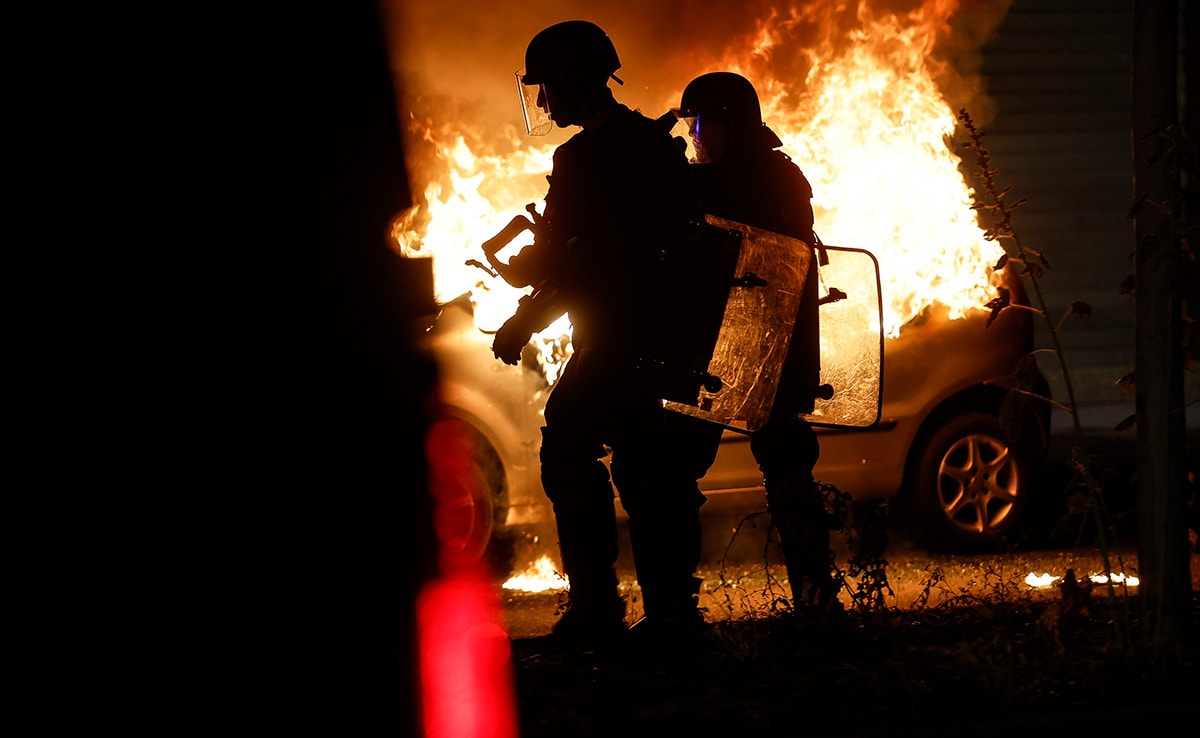Over recent weeks, France has been gripped by a series of protests and riots triggered by the tragic death of a 17-year-old boy named Nahel, who was fatally shot by a police officer during a traffic stop. The incident sparked widespread unrest, with thousands taking to the streets in a march led by Nahel's mother, Mounia, to remember the teenager and demand justice. The protests started in Nanterre, the north-western Paris suburb where Nahel lived, and soon spread throughout the country, from the Mediterranean port city of Marseille to the tranquil Pyrenees town of Pau.
The incident has served to fuel longstanding complaints of police violence and systemic racism inside French law enforcement agencies, particularly in the low-income, racially mixed suburbs surrounding the major cities. Protests were characterized by slogans such as "Justice for Nahel", a call to end a perceived culture of police impunity, and a demand for reform in law enforcement. This tragic incident marks the third fatal shooting during traffic stops in France so far in 2023, with the majority of victims since 2017 being Black or of Arab origin.
In response to the escalating unrest, tens of thousands of police officers were deployed to quell the protests, which lasted for three nights in a row. The violence resulted in significant property damage, with cars and garbage bins set ablaze, a Molotov cocktail thrown at a new police office, and even a town hall in the Paris suburb of L’Ile-Saint-Denis being damaged by fire. The unrest even extended to Brussels, the administrative home of the EU, where related scuffles led to a number of detentions.
In the wake of these events, French President Emmanuel Macron is set to hold a new government emergency meeting. However, the specific political consequences for Macron and his government are not yet clear. The issue of police violence and racism has been brought into sharp focus, and it remains to be seen how Macron will address these issues to restore peace and confidence among the populace.
These tragic events have laid bare the persistent social issues in France, particularly the problem of juvenile delinquency in the suburbs of major cities. These areas have been a focal point of the protests, demonstrating the urgent need to address the glaring social disparities and feelings of injustice that are deeply rooted in these communities.
The issue of systemic racism has also been thrust into the spotlight. The majority of victims in police shootings since 2017 were reportedly Black or of Arab origin, underscoring allegations of systemic racism within law enforcement. The current protests are a clear call for justice and a demand for reform of a system perceived as biased and unjust.
President Emmanuel Macron now faces the challenge of addressing these issues amidst the ongoing unrest. His actions during this critical time could have lasting implications for France's socio-political landscape. Further analysis is needed to fully understand the impact of these events on the discussions surrounding juvenile delinquency, social disparities, and racism in France.









